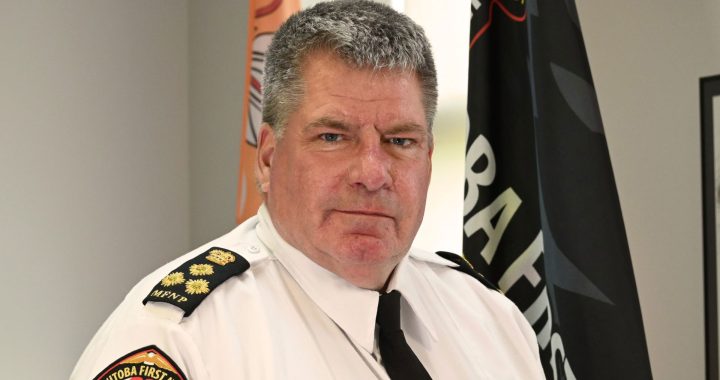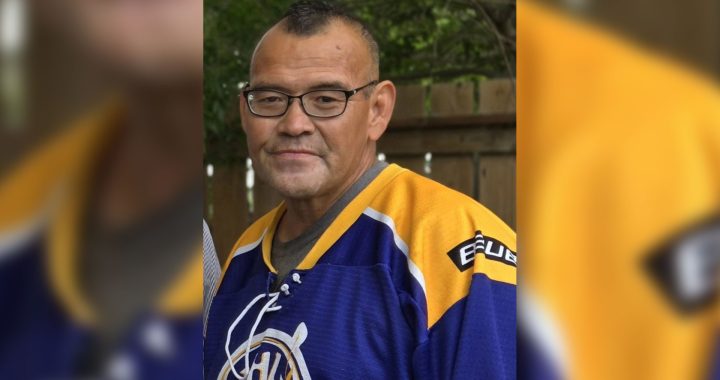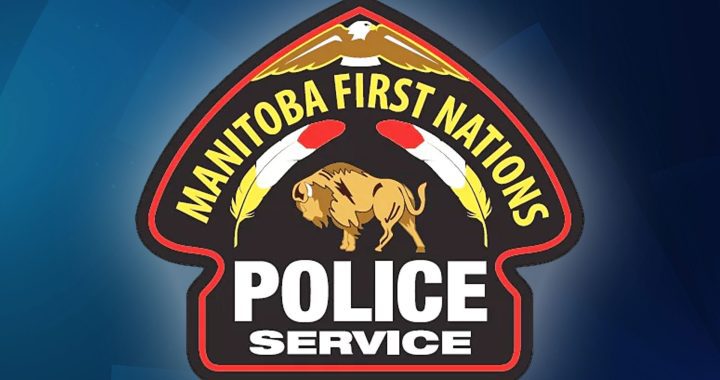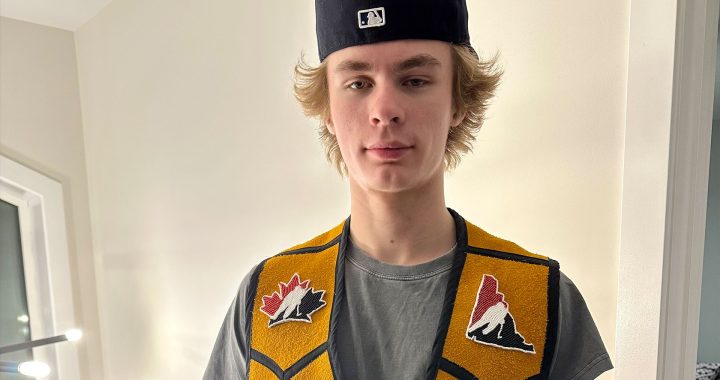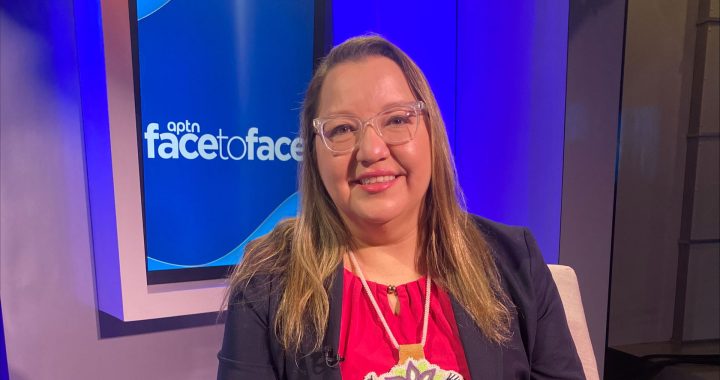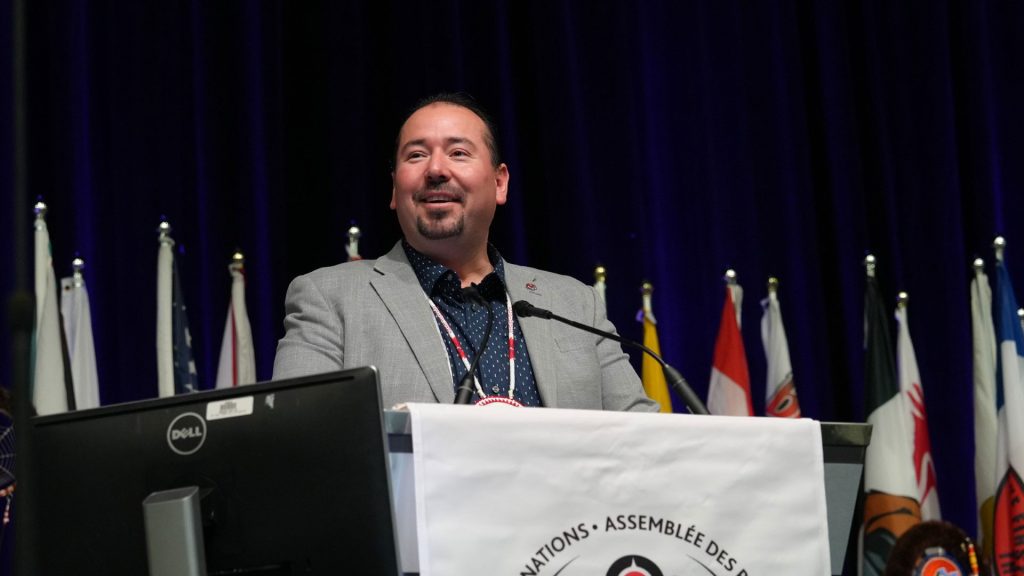
COO Grand Chief Abram Benedict, seen here at the AFN SCA in Ottawa on Dec. 3, was a staunch supporter of the child welfare reform deal. Photo: Mark Blackburn/APTN
Chiefs across Ontario are working with Indigenous Services Canada (ISC) to sign an agreement on reforming the on-reserve child welfare system.
The Nishnawbe Aski Nation (NAN) and Chiefs of Ontario (COO) announced Tuesday their intention to negotiate on their own with Canada.
APTN News was directed to review an updated draft agreement online but has been told it’s changing daily as negotiators are already back at the table.
“ There’s ongoing negotiations, revisions, a rolling draft of the agreement, so, I’m sure whatever you’re seeing right now will probably change tomorrow, right?” said NAN Grand Chief Alvin Fiddler.
NAN represents 49 First Nations in northern Ontario.
“ The elements that will be in our agreement are already out there,“ Ontario Regional Chief Abram Benedict told APTN News. “So there’s going to be no secrets of what’s going to be in our agreement because it will be all the same elements that are in the draft agreement that all First Nations across Canada have seen, that many technicians have seen.
“We will only pull out the elements that are not relevant to Ontario.”
Fiddler added that a settlement agreement stabilizes funding for the next ten years and stops the almost constant litigation that’s been ongoing for almost two decades.
“It’s an opportunity for our communities to access additional resources for them to be able to look after their own children and their own homes,” said Fiddler.
Jordan’s Principle is not included in Ontario’s settlement agreement.
“ The status quo, as it currently exists continues to harm our children and, in some cases, is putting their lives at risk…we love our kids and, and we know that they deserve better, said Fiddler.
The Final Settlement Agreement, or FSA, is the result of a complaint filed at the Canadian Human Rights Commission in 2007 by the Assembly of First Nations (AFN) and the First Nations Child and Family Caring Society. They alleged that Canada discriminated against First Nations children on reserve by underfunding child welfare programs and Jordan’s Principle. NAN and COO would later receive standing at the hearings.
In 2016, the Canadian Human Rights Tribunal agreed and ruled the federal government discriminated against kids in care by underfunding programs aimed at First Nations children – and underfunding of prevention programs means that if a child needed services, such as addiction care, or psychological care, often the only way to get services was to remove them from their home and place them in the child welfare system.
The Tribunal ordered Canada to pay compensation – and work to reform the child welfare system and Jordan’s Principle.
In 2022, without the Caring Society at the negotiating table, Canada, NAN, COO and the AFN signed an agreement in principle that came with $20 billion. In July 2024, the amount was upped to $47.8 billion and the participants signed the Final Settlement Agreement, or FSA.
But for it to be a done deal, it still needed to go before chiefs across Canada for a vote.
The FSA was voted down by chiefs at a gathering in Calgary in October. Many said they hadn’t been consulted and that there were flaws in the agreement.
A series of resolutions were passed in subsequent AFN assemblies calling for a Chiefs Children’s Council (CCC) to be formed to renegotiate the deal.
Ontario did not appoint anyone to sit on the National Children’s Chief Committee established by the AFN resolutions in October, they are continuing to work with their own Final Settlement Advisory Committee.
Ontario will not get all of the $47.8 billion contemplated in the national agreement, but a portion which had been determined as fair for Ontario through a funding formula. None of the parties involved, however, provided an exact figure.
The AFN posted a notice on Tuesday saying it had received a letter from ISC stating “Canada has now confirmed in a letter that its mandate on reform of First Nations Child Welfare: does not permit further negotiations at a national level.”
In fact, the letter went even further than what was made public, saying explicitly that, “Canada is not currently in a position to engage in any negotiations beyond those with Chiefs of Ontario (COO) and Nishnawbe Aski Nation (NAN).”
ISC has clarified it is not negotiating any other deals. This means chiefs who rejected the deal are shut out.
The Assembly of First Nations did not respond to a request for further comment on the matter, however, National Chief Cindy Woodhouse Nepinak had originally urged chiefs to vote for the deal. After they voted against it, she promised to accept and support that decision.
Why is Ontario going ahead?
Since the October meeting where the FSA was rejected, COO and NAN have been consulting with their chiefs to determine the next steps.
“To be clear, this is not a new deal, it is the exact deal that was proposed last year,” said Jennifer Kozelj, press secretary for ISC Minister Patty Hajdu.
“ We’re not reinventing, we’re not starting from square one. I think a lot of that work is already built into the national agreement that was rejected,” says Grand Chief Fiddler, noting the deal has been years in the making, “So I think we have a lot to go on, but obviously there’s issues that need to be worked out in a regional agreement,” he said.




